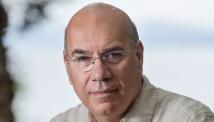BEIJING (Reuters) – China‘s consumers are leading an uneven recovery in the world’s second biggest economy that has retailers expecting stronger sales in six months, early results of a national survey showed on Wednesday.
The China Beige Book survey of more than 2,000 executives revealed that the retail sector had the strongest revenue growth and business expectations in the fourth quarter of 2012.
The survey broadly detected a mild economic recovery with the hard-hit sectors of real estate, mining and manufacturing – to a lesser extent – joining retail at the head of the upswing.
“The revenue growth pickup was notable in luxuries and durable goods – furniture, appliances, and autos,” said the survey, conducted between October 26 and December 2 by New York-based CBB International and based on the U.S. Federal Reserve’s economic report of the same name.
“Retailers’ mood remains quite hopeful, with 72 percent forecasting higher sales in six months, up 4 points on last quarter. A remarkably low 6 percent foresee declines,” it said, adding that 61 percent of retailers reported higher sales in the Q4 survey than in Q3.
The biggest bounces were seen in coastal Guangdong province, Beijing, the northeast and central regions of China – locations which Q3′s survey found had the biggest spending falls.
The retail rebound was not evenly distributed, however, with Shanghai and the southwest region recording falls in spending.
The survey’s findings are reflected in the most recent raft of economic indicators from China, revealing a mild rebound taking hold in Q4, and in policymaker comments.
China’s retail sales grew 14.9 percent year-on-year in November, ahead of the 14.6 percent forecast in a Reuters poll.
China is on course to end 2012 with the slowest full year of growth since 1999 and while the 7.7 percent rate forecast in a benchmark Reuters poll is way above the world’s other major economies, it is far below the roughly 10 percent annual growth seen for most of the last 30 years.
Weakness in the external environment remains a key drag on an economy in which exports generated 31 percent of gross domestic product in 2011, according to World Bank data, and where an estimated 200 million jobs are supported by foreign investment, or in factories producing for overseas markets.
RECOVERING, REBALANCING
The upside to the patchiness of the recovery is that it is being driven by services, which are calibrated more towards domestic demand. Geographic rebalancing away from prosperous coastal areas was also evident in the survey, with firms in the western region recording the highest revenue growth in Q4.
The survey had mixed findings for labor markets, with a 3 point rise to 34 percent in the proportion of firms citing an increased availability of unskilled labor, while 20 percent said shortages had increased.
Some 34 percent of firms increased their workforces in Q4 from Q3. Wage rises were reported by 52 percent of respondents.
Bankers questioned in the survey said credit conditions eased in Q4, but fewer firms borrowed. Meanwhile, banks and firms said loan rejections rose slightly, to 16 percent, and exposure to companies with excess production capacity was cut.
“Few corporate loans went to new customers: three-fifths of bankers say under 20 percent did — an astonishingly small number,” the survey said.
“Most were debt rollovers or loan increases for existing clients. This is not yet a period of strong expansion.”
The China Beige Book survey of face-to-face and telephone interviews compares conditions with the previous quarter and asks respondents to anticipate conditions three and six months ahead.
The survey sample includes executives from manufacturing, retail, service, transport, real estate and construction, farming, and mining. Respondents ran businesses of every size from the micro-level – employing up to 19 staff – to large firms with more than 500 employees. It also canvassed opinions from 160 bank loan officers and branch managers.
A detailed report of the survey’s full findings will be published in early January.
(Reporting by Nick Edwards; Editing by Robert Birsel)
Economy News Headlines – Yahoo! News
Title Post: China consumers driving economic rebound: survey
Rating:
100%
based on 99998 ratings.
5 user reviews.
Author:
Thanks for visiting the blog, If any criticism and suggestions please leave a comment


